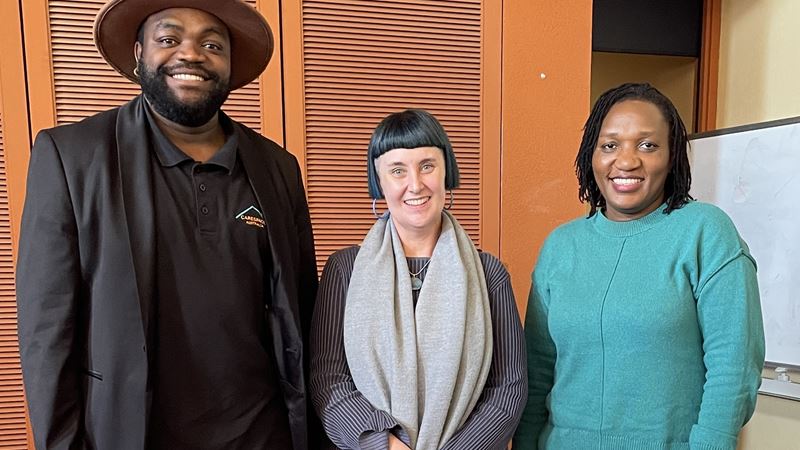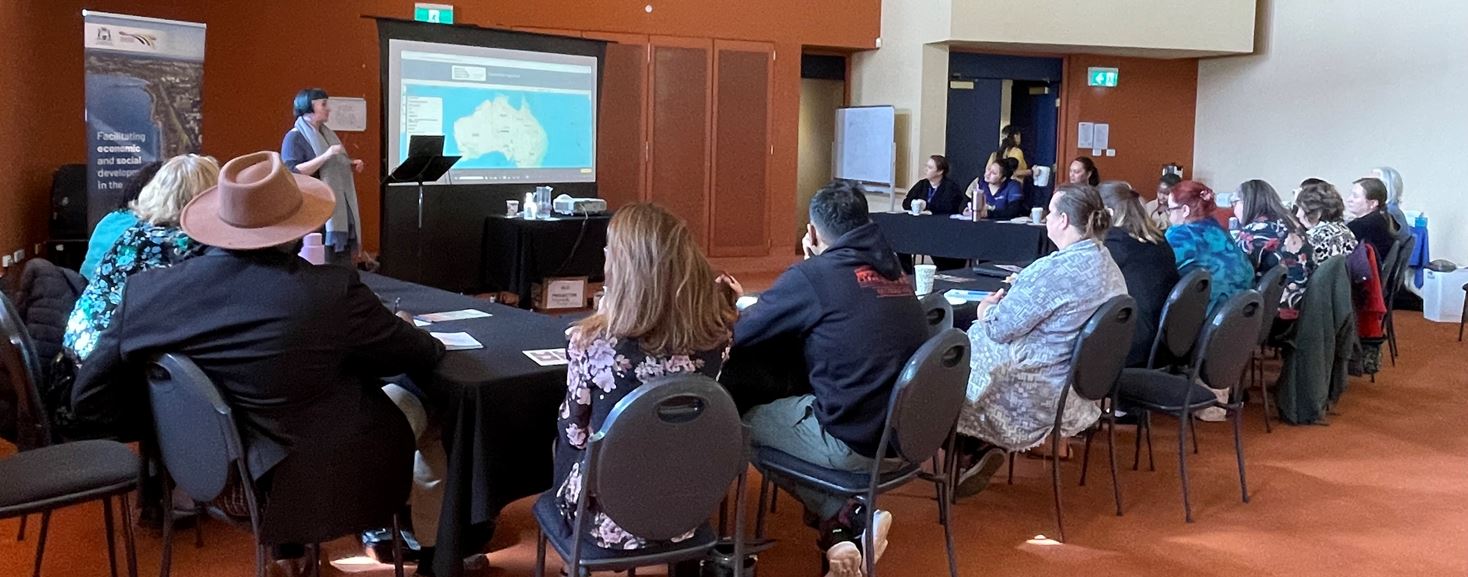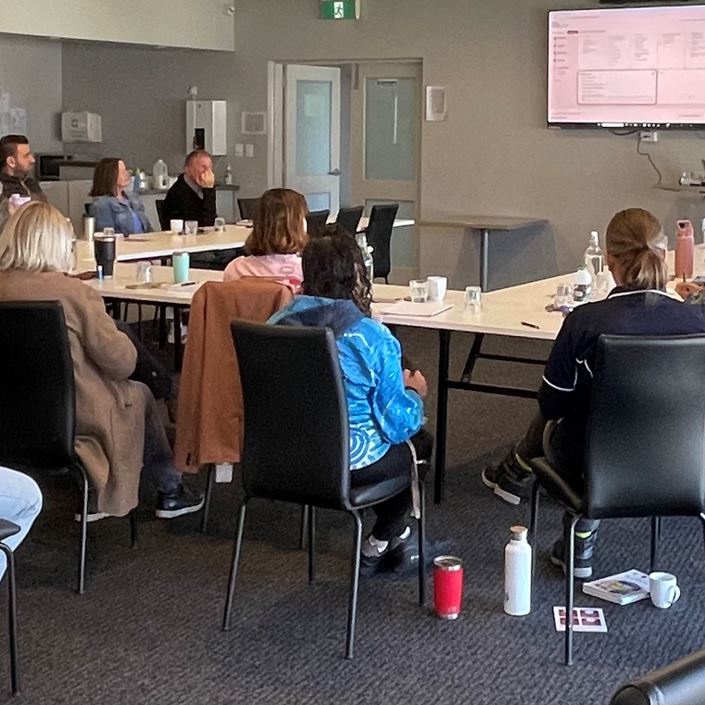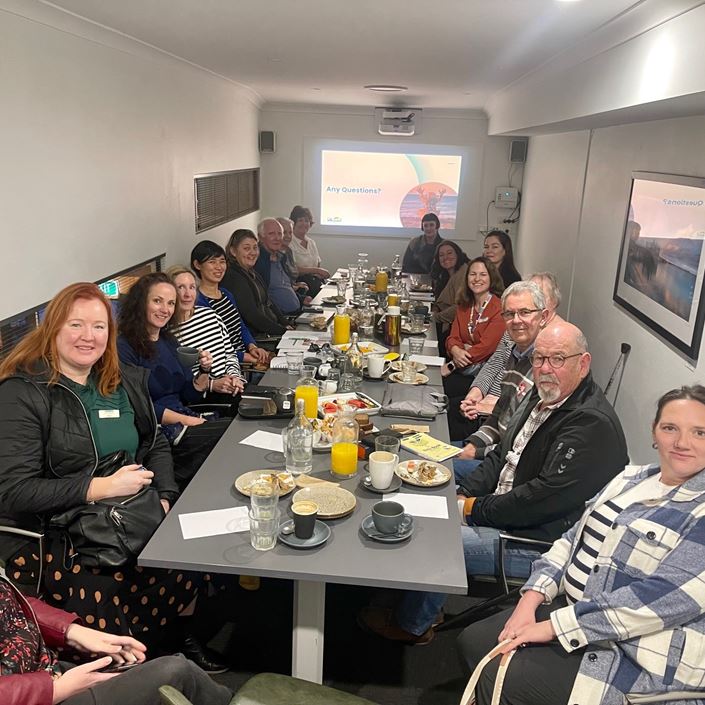Grant making
Impact Cafés 2025: Listening, learning, and changing the way WA engages with grants
Lotterywest’s Impact Cafés began in 2024 as a way to listen to grant seekers and support their journey toward outcomes-based grant making. By 2025, the program expanded to 31 workshops, reaching over 500 participants and uncovering 290 barriers. Through practical tools, peer learning, and the Community Impact Hub, attendees gained confidence and clarity. The initiative sparked collaboration, boosted Hub usage by 66%, and inspired broader adoption across sectors. With new resources and an Outcomes Evidencing Toolkit on the way, Lotterywest continues to build capability and amplify impact across Western Australia.
07 November 2025
In 2024, we started with a desire to reach out to our stakeholders to have full and frank conversations about Lotterywest’s transition to outcomes-based grant making – how they understand it, and how they respond to it in initiative planning and grant applications. We called them Impact Café’s. We ran six regional sessions. They were small, experimental, and designed to test a simple idea: what happens if we move from telling grant seekers what we need from them to also listening to their challenges, meeting them where they are, and providing them with practical guidance for meeting our expectations? Could we help them go from confusion to confidence on their grant seeking journey?
A year later, that idea had grown into a significant, statewide capability-building program. In 2025, we delivered 31 sessions across the State – from Kalgoorlie to Kwinana, Geraldton to Gosnells. We’ve delivered 16 regional and 15 metropolitan workshops, reaching more than 500 individuals from over 150 organisations.
That’s a 417% increase in sessions, a 317% increase in attendees, and a whole bunch of amazing feedback and insights. But while the numbers are nice, we all know they only tell part of the story.
The real impact came from what people said, what they learned, and what they (and we) did next.
Starting with barriers
Every Impact Café begins with an icebreaker: a simple question about what’s hard, confusing, or frustrating about applying for grants.
While we don’t focus on Lotterywest grants specifically, but on the process of grant seeking in WA generally, we do use it as a real opportunity for learning, both for ourselves, and for our colleagues in the grant-making and philanthropic space.
In 2024, we documented 55 distinct barriers. In 2025, that number jumped to a whopping 290.
But we don’t think that’s a sign of failure – we think it’s a sign of our expanded reach and the fact that people felt safe enough to be honest with us about their real ‘icks’ when they’re looking for and applying for grants.
The barriers expressed by our stakeholders ranged from technical to emotional. Some were about language: “Don’t know the ‘words’ that are expected—don’t know how to use the grant ‘lingo’.” Others were about confidence: “I have not done this before, and it scares me a LOT.” Many were about time and capacity: “Time to write grants is taken from normal duties and can mean less time for implementing projects and supporting communities.”
In regional areas, we heard about poor internet connectivity and digital anxiety, difficulty sourcing quotes, trades and resources, and the challenge of finding matched funding. In metro areas, the concerns were more often about complexity, repetition, and inconsistent advice. But across the board, one theme kept coming up: people felt like they were being asked to write a thesis just to apply for a modest grant.
Responding with practical support
Our Impact Cafés were designed to respond to these barriers - not with theory, but with tools, templates, and peer-led learning. Participants worked through real examples, built logic models in real time, explored theories of change, and learned how to use the Community Impact Hub to plan and communicate their projects.
The feedback was clear. After the sessions:
- 100% of attendees felt at least “somewhat confident” using the Hub tools
- 53% felt “very confident”
- 94% said they’d apply their new skills immediately
- The average session rating was 4.83 out of 5
- 99% said they’d recommend the café to others
One participant wrote, “I feel very confident using the Hub to plan my project now - I know what to look for.” Another said, “I’ll definitely use the SMART indicator approach in our next application.” And perhaps most telling: “Hands-on, clear, actionable - exactly what we needed.”
To Lotterywest, these are more than lovely reviews for us to congratulate ourselves on - they are signs of real capability being built across our grant-seeker community, and that was our goal. Because to us, what this really means is that our expectations are becoming clearer for our stakeholders, and the impact of the grants submitted will be higher in future years.

Building Connection
One of the most powerful aspects of the cafés was the sense of connection they created. In Kalgoorlie, a couple of our attendees drove all the way from Esperance to join us - postponing their return to Perth just to attend the session. That’s a 700km round trip. For a workshop. That is some dedication. We’ve seen organisations meet for the first time, and coordinate collaboration and mutual support.
We also ran some Business Connect sessions in Mandurah, Bunbury, Geraldton and Fremantle, linking our retailers with grant recipients. These conversations helped retailers understand the real-world impact of the grants their ticket sales enable – giving them ‘good news’ stories to share with their customers. One retailer said, “It is always nice to know where the grants are going locally, and the impact they have within our local communities.”
What we learned
The cafés didn’t just teach participants - they taught us. Through this process we learned that:
- People want plain language, not jargon
- They want clarity about expectations, not just obtuse criteria
- They value peer support and hands-on learning opportunities as much as ‘expert’ advice
- They’re more likely to apply when they feel confident, not just informed
- Snacks are key
We also learned that some barriers are persistent. Time, complexity, and confidence gaps remain major challenges for many grant seekers. But we now have a clearer picture of what those barriers look like - and how to address them.
We’ve noticed that the ripple effect of this program has extended beyond the cafés themselves. In 2025, the Community Impact Hub saw a 66% increase in users and a 58% increase in sessions. More than 3,980 Impact Plans have been exported since we launched the Hub, and over 277 have been submitted alongside Lotterywest grant applications as supporting material over the past two years. That’s real adoption with real outcomes – for our stakeholders – and for us!
We’ve also seen a shift in how organisations approach planning. The Hub’s tools - especially the Logic Model and Evaluation Planner – have been used by all sorts of organisations for all kinds of projects. Organisations are using them to support diverse funding applications, not just those submitted to Lotterywest.
We’ve seen Local Governments apply the tools to their project planning, and even their strategy development, and universities embedding the tools into their own project design and teaching processes. Government Departments and major philanthropists are using the tools and recommending them to their networks. Even some of the community development consultants and grant writers out there are using the tools to support their work.
We believe this suggests a deeper change: organisations are starting to embed outcomes-based approaches into their work, not just their paperwork. They’re starting to see the tools and concepts as key to developing learning organisations. And they’re starting to understand that measuring social impact isn’t just about the numbers – it's about the insights, and the narrative.



What’s next - scaling the impact
Based on what we've learned, we’re developing new resources and workshops focused on outcomes measurement, indicator design, and evaluation tools. We’re going to look at how we better support grant recipients to look beyond ‘one-off’ grant funding to support their future project and organisational sustainability, and we’ll be supporting grant seekers to connect and collaborate for amplified impact. We’re also launching an Outcomes Evidencing Toolkit in the near future, which will make the process of data and evidence gathering for acquittal and impact reporting easier, and frankly, more fun.
In 2026, we’ll continue to expand our regional outreach, ensuring that support is tailored to local contexts, and we’ll continue to build on the Community Impact Hub’s resources and design to ensure that our stakeholders have the best grant-seeking experience possible.
The cafés have shown us that capability building isn’t about delivering content - it’s about creating space for conversation, learning, and shared problem-solving. That’s what we’ll keep doing.
Want to host an Impact Café in your region in 2026?
Visit https://communityimpacthub.wa.gov.au to explore tools, templates, and upcoming events - or reach out to our team at community.impacthub@lotterywest.wa.gov.au to start a conversation.
Learn about wellbeing
Understand how your community is going to help you to better target and plan your project.
Ready to plan your project?
Understand your vision, plan your impact and report on the outcomes of your project with three easy interactive tools in the Community Impact Planner.
Acknowledgement of Country
The Western Australian Community Impact Hub acknowledges and pays respect to the Traditional Owners of the land on which we are based, the Whadjuk people of the Noongar Nation and extends that respect to all the Traditional Owners and Elders of this country. We recognise the significant importance of their cultural heritage, values and beliefs and how these contribute to the positive health and wellbeing of the whole community.
